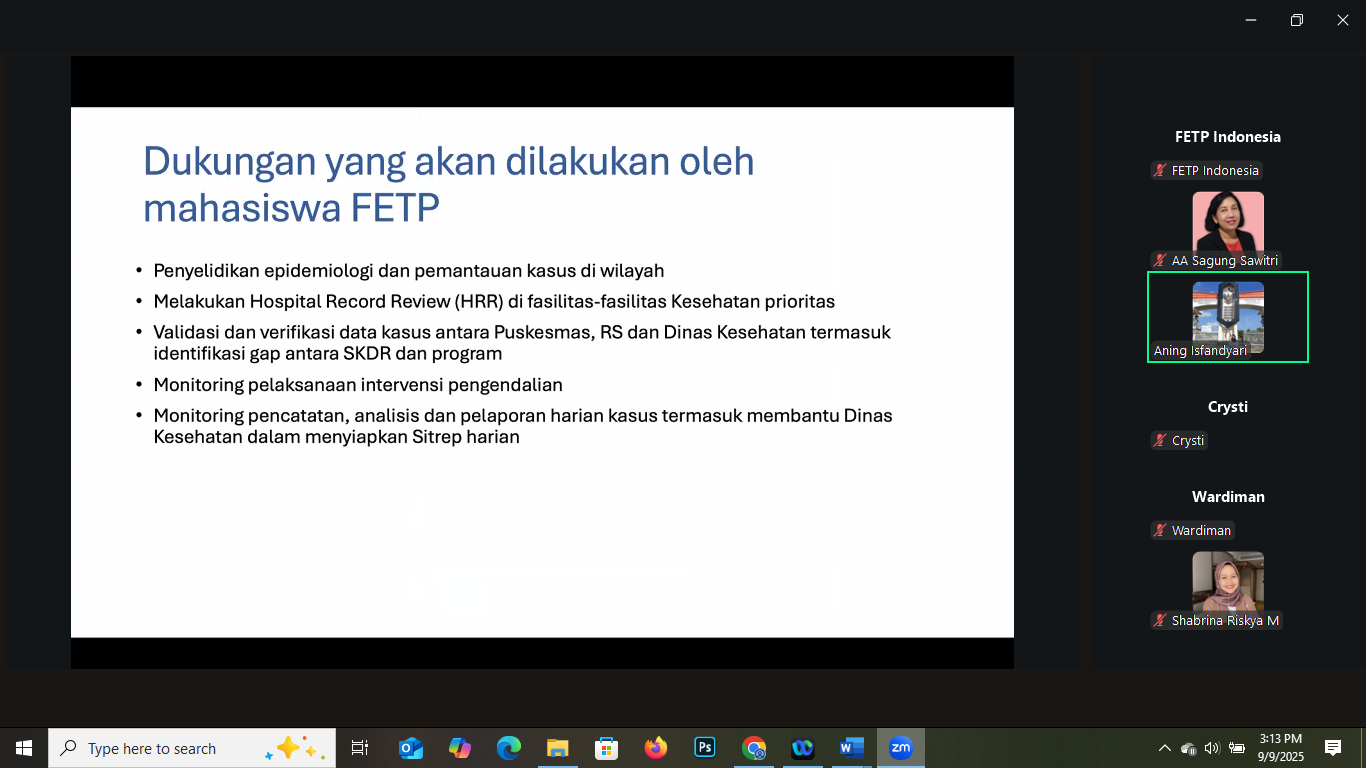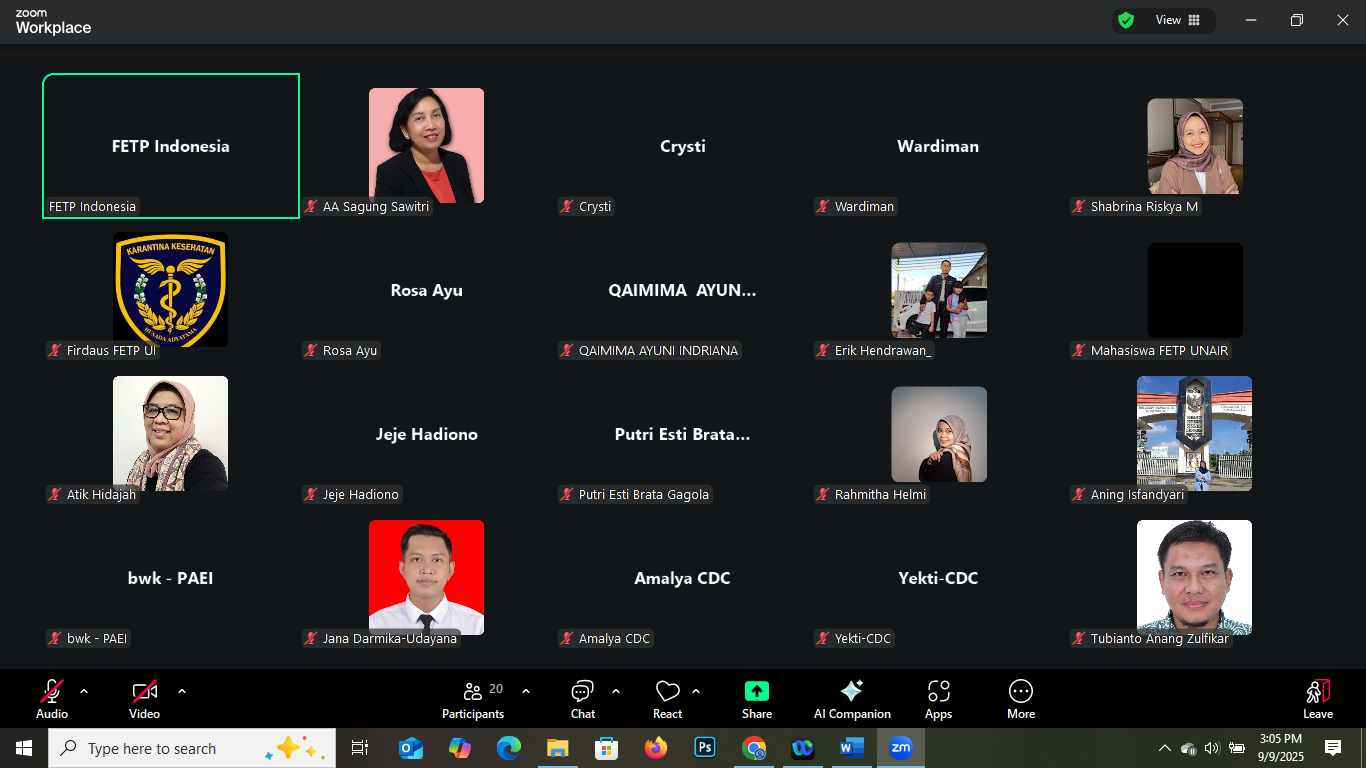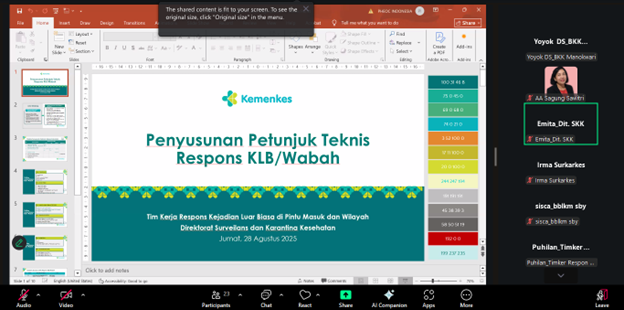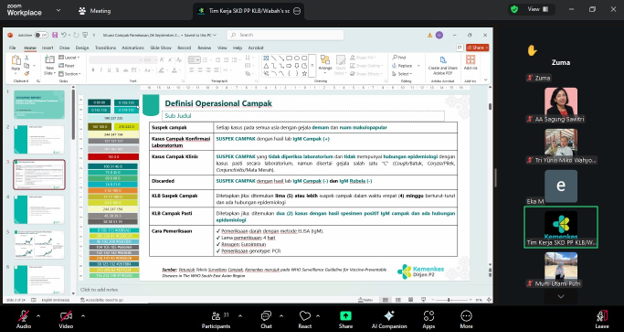Field Deployment Preparation Series 2: UNUD MPH Students Gear Up for Pamekasan Outbreak Investigation
As the deployment date for the Master of
Public Health (MPH) students to Pamekasan approaches, a second pre-deployment
briefing was conducted via Zoom on 8 September 2025 to ensure thorough
preparation. During this session, valuable field experience and technical
insights were shared by FETP students from Universitas Airlangga (Unair) who
had recently completed a two-week assignment in Sumenep District.
The discussion covered practical challenges
commonly encountered during fieldwork, including duplicate data entry, limited
availability of investigation forms, restrictions in epidemiological
investigations for fatal cases, daily reporting procedures, and other
operational issues. Additional guidance was provided by the Public Health
Emergency Operations Center (PHEOC) on detailed technical aspects of daily
field investigation reporting. Input was also contributed by FETP coordinators
from Universitas Indonesia (UI), Unair, Pamekasan District Health Office, and
the East Java Provincial Health Office, providing a comprehensive perspective
for the UNUD team.
This information proved highly valuable for
UNUD MPH students Jana Darmika and Erik Hendrawan, enabling them to better
anticipate and manage fieldwork challenges. During the deployment, the UNUD
team will work alongside FETP UI, fostering collaboration and adaptive
problem-solving skills. Being directly immersed in the field, interacting with
officials, technical staff, field teams, and communities, students are expected
to develop competencies in conducting investigations, preparing daily and final
reports, and managing tasks efficiently within tight timelines.
This second series of pre-deployment preparation not only strengthens the students’ technical and professional skills but also aligns with the MPH program’s vision to produce competent public health professionals capable of responding effectively to outbreaks. The structured briefing enhances the program’s curriculum relevance, supports accreditation standards by documenting hands-on learning processes, and contributes to societal needs by ensuring graduates are well-prepared for field-based epidemiology and outbreak management.




MEDICAL FACULTY